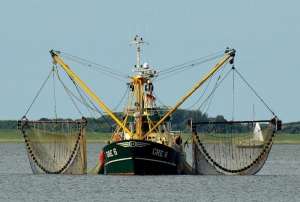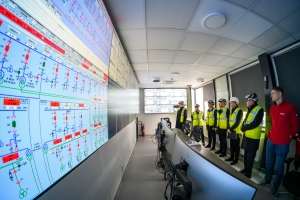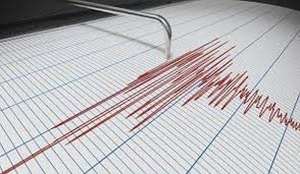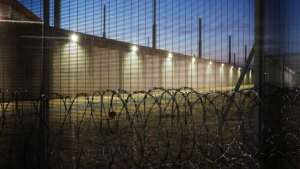Those who want to develop businesses in South-Eastern Europe should do that in Bucharest, says Doru Lionăchescu the president of Capital Partners, a consulting company which was acquired by BT Securities, with the stated goal of creating the most important Romanian financial pole.
He thinks that Bucharest has to get back the vocation it had between the two world wars of being a center of South-Eastern Europe, and he says: "That means strong domestic capital, infrastructure, rule of the law.
We have the biggest country in the area. I don't see why, in the current context, Romania shouldn't once again become what it normally ought to be - the hub of South Eastern Europe, from a business point of view. This is our country's vocation. I think that there is nothing in our way - creating holdings is possible, we are EU members, NATO members, the fiscal regime is among the most generous in the region".
Doru Lionăchescu thinks that, after 26 years, many companies in Romania have mature Romanian entrepreneurs and managers, and many companies with domestic capital are competing on equal footing with the multinationals, in terms of experience and know-how.
He added: "We are no longer in the early 90s, when we were all trying to learn from the multinationals, to understand their techniques, to learn capitalism. Those who were serious learned and we are now seeing capitalism in many areas. It is in fact, a market takeoff towards normalcy. I think that what comes next is the consolidation of the domestic capital. We will see major sectoral players and I hope they drop their shyness and achieve scale at least regionally. Without pitting Romanian and foreign companies against each other, I have to mention that we already have sectors in which domestic capital stands out very well".
In the opinion of Mr. Lionăchescu, it is noticeable that there are sectors in which the presence of a company with Romanian capital has been beneficial for consumers: "For example, in the telecom sector, the presence of a big local player has served to balance things and has allowed us to have internet speed, as well as some of the lowest costs to consumers. Also, in DYI, the fact that a powerful player has consolidated their presence on the market has been beneficial for consumers. In the area of financial services, it's the same - a Romanian presence among the top three competitors in the sector is very important.
We need to learn that in this competition of globalization you need to be big to be able to compete. We can't just sit on the sidelines, everybody with their own company and complain that we are getting crushed by the foreign competition. That is not the correct attitude. On the contrary, the correct attitude is to see the ways through which to have the size that allows to fight on an equal footing. We are not talking here about taking on an war-like position - foreign investors on one side of the barricade and Romanian investors on the other. There is no need for any inferiority complex".
Doru Lionăchescu says it is not fair for the representatives of the domestic capital to ask for preferential treatment, as in his opinion "the playing field" should be the same for everybody.
"Romanian companies shouldn't be isolated by the Romanian government into a glass globe that would protect from any harsh conditions. The resources of the state budget are limited, and the social priorities are a lot greater, so that the state can not support some economic sectors indefinitely".
In the opinion of Mr. Lionăchescu, Romanian entrepreneurs should start thinking big, and to try and find out what big strategic moves they can make, without being fearful.
• Blănculescu: "The future of domestic capital continues to be gloomy"
Economic analyst Ionel Blănculescu has a different opinion, and he describes domestic capital as the stepchild of the Romanian economic environment.
He said: "Domestic capital, and I am not talking about the one invested in neighborhood businesses, coffeehouses and restaurants, is unfortunately still dependent on that powerful foreign capital, on an upstream and downstream market that are extremely clearly separated, and holds the following roles: it is either a supplier of the foreign capital companies, or a customer, and/or - the a subcontractor, the party which, in most types of contracts generated by public or private procurement for products and services, carries out the most complicated and difficult tasks. Romanian companies are rewarded with flimsy money, totally disproportionate compared to the labor effort, but which has the role of ensuring the survival of this species that has not yet gone extinct from the Romanian economic environment, namely the subcontractors of major transnational companies, investment funds etc.
Compared to the Turkish market, where domestic capital finds itself invested in big national holdings, with regular turnovers, ranging between 3 and 9 billion dollars, present on almost every continent through its businesses, or to the Iranian market, a market which was opened after the lifting of the sanctions, overflowing with money, where domestic capital also rules, and getting closer to our region, to the markets of the Czech Republic, Poland and even Hungary, we can say that in Romania, domestic capital is the stepchild of the Romanian economic environment, having become orphaned, without any promising future, other than being a servant in its own country to foreign capital, which is present in over 80% of the country's streets and therefore calling the shots on Romania's future, economic or otherwise!"
The future remains gloomy for domestic capital, at least given the continuation of the globalization process which "cements the inequality between the two types of capital, sealing their future - bright for one of them, - of living in the shadow for the other", the economist further says.
Ionel Blănculescu further says: "In this position, of domestic capital living in the shadow, it will continue to barely survive, to remain dependent on its bigger brother, which will be feeding it crumbs, to keep it from dying and to allow it to continue to carry out its mission of subcontractor for life".
Still, according to the analyst, there are hints of a beginning of a solution being found, for the rehabilitation of domestic capital, which is found in the segment of state owned companies - Transelectrica, Transgaz, Romgaz, Conpet, Oil Terminal, Electrica, CFR Marfă, Antibiotice -, which should be reinforced through stronger injections of financial resources from the state, "so that their professional management would turn them into the outpost of domestic capital, and allow the shoots of private domestic capital to grow in their shadow and under their protection".
While this is the beginning of a solution, a continuation of it would the creation of the Romanian Sovereign Investment Fund, Mr. Blănculescu thinks. He says that a state "which has such a structure" can develop a second source of revenue for the state budget, aside from taxes, namely the dividends from its own business activity.
Ionel Blănculescu said: "This structure could exploit even the opportunities that arise regularly on a global level, in times of crisis, not just the opportunities that exist during the good periods, of economic growth, providing the option of using the most powerful economic platform, internationally, represented by the economic departments - with highly qualified economic personnel, but which is seriously underused right now - of each individual embassy, an infrastructure which can provide unimaginable competitive advantages to the Romanian state, for any other type of business which is required to allocate huge amounts of money to the opening of domestic branches. This Sovereign Romanian Investment Fund, together with powerful and strengthened state owned companies, including through the creation of strong state-owned holdings, in energy, transports, logistics etc., could allow the leeway to talk about the existence of serious and credible domestic capital in the coming ten years".
• Pârvan: "Romanian companies are required to do things the same way as multinationals, but they can't consolidate fiscally"
Companies with Romania equity are facing several problems, and need the intervention of the state, says Cristian Pârvan, the secretary general of the Association of Romanian Businesspeople (AOAR).
One of the first requests which the Association has made on several occasions was for domestic companies to be allowed to consolidate into fiscal groups.
Mr. Pârvan told us: "The state does not accept the fiscal unification of groups of Romanian companies, thus discriminating against them compared to multinational companies. Numerically speaking, international groups are about 39,000, and national groups are about 5,000. The question is why did the public policy of all the previous governments not encourage the consolidation of the groups of Romanian companies through a simple measure, which is accepted for international groups?
We have requested this thing several times. Finance minister State Secretary Gabriel Biriş said that it would get solved, but Minister Anca Paliu Dragu, coming from the IMF, says that she doesn't have the fiscal space. She has to understand that Romanian companies have no way to export the profit. Furthermore, through the law of accounting, groups of Romanian companies are required to put out consolidated balance sheets. For the consolidated balance sheet, companies are required to set up transfer pricing statements. In other words they are required to do everything the same as multinationals, but fiscal consolidation is not accepted".
Another problem raised by Cristian Pârvan is represented by the state aids. Business people are asking for them to be granted based on an economic policy of the government, so that companies which train and use Romanian secondary suppliers get bigger aids. That would favor the reinforcement of Romanian companies in cooperation with international companies and would favor the relaunch of value chains, regardless of the sector, according to the representative of the AOAR.
He said: "I have proposed for the some ten programs for stimulating the Romanian entrepreneurship, in various forms, to receive higher funding. I have also proposed a strategic investment code made through government bonds issued over periods of 10-15 years and tradable on the stock exchange".
According to Mr. Pârvan, there are about 200 small and medium companies that are going through a very difficult situation, being at risk of bankruptcy.
He explained: "We have approximately 200 SMEs which have accessed funds through the POSCCE. They have delivered their projects appropriately, they have been investigated according to the methodology, and then came an additional audit by the Court of Accounts and by other institutions, which has led to the reinterpretation of some legal provisions generated by the Ministry of European Funds and by the Project Management Authority, which claimed that certain criteria were not met and demanded the refunding of the EU grants they received. That is causing those companies to go into default. For that problem, which has been known for a year, the government can not find any solution. If no reasonable solutions are found to remedy this situation, then companies which have no other irregularities in the execution of their projects than this interpretation based on diverging criteria should receive state aid!"
Cristian Pârvan told us that the Ministry of the Economy had a "strictly formal" answer to the requests of the AOAR on that matter, as the Ministry of European Funds says that it wants to resolve that issue, but it needs the Ministry of the Economy, and the Ministry of Public Finance is the one that manages the funds used to support the business sector.
"These decision makers are failing to collaborate, to reach an agreement, to assess the stakes. If we ask the companies for their money back, we cause them to go into default or a number of lawsuits start, which means time and money wasted", Cristian Pârvan warns.
The representative of the domestic business sector concludes that in Romania, new mechanisms and practices need to be introduced in order for the innovative products and services made in Romania and saleable in other countries to be sold in Romania as well.



























































